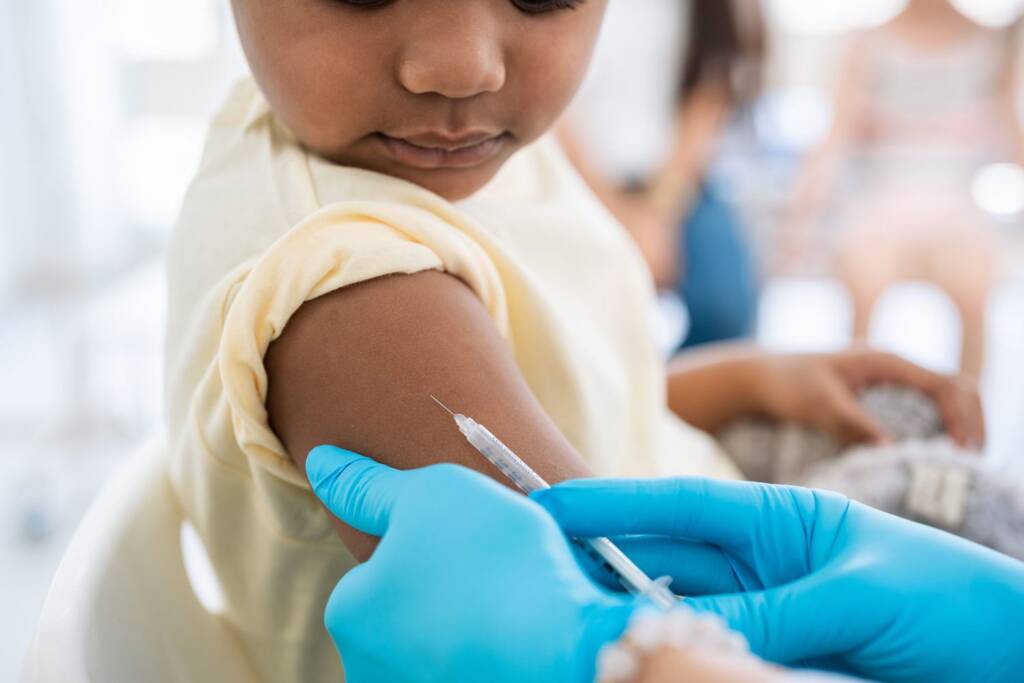Early childhood vaccinations play a critical role in safeguarding the health of children and communities. These vaccinations are essential in preventing serious diseases that can cause long-term health complications or even death. This article delves into the importance of early childhood vaccinations, examining their benefits, the diseases they prevent, safety and efficacy, common misconceptions, and the global perspective on vaccination efforts.
What are Early Childhood Vaccinations?
Early childhood vaccinations are immunizations administered to young children to protect them from infectious diseases. These vaccines stimulate the immune system to recognize and fight specific pathogens, providing immunity without causing the diseases themselves. Common vaccines for children include those against measles, mumps, rubella, polio, diphtheria, pertussis, tetanus, hepatitis B, and Haemophilus influenzae type b (Hib). Typically, these vaccines are given from birth to around six years of age, following a recommended schedule to ensure optimal protection.
History of Vaccinations
Vaccination has a rich history, dating back to the late 18th century with Edward Jenner’s development of the smallpox vaccine. This milestone paved the way for the creation of vaccines for other deadly diseases. Over the decades, vaccines have dramatically reduced the incidence of infectious diseases, leading to the eradication of smallpox and the near elimination of polio. These achievements underscore the profound impact of vaccines on public health.
How Vaccines Work
Vaccines work by mimicking infectious agents, prompting the immune system to respond as it would to a real infection. This process involves exposing the immune system to antigens, which are components of the pathogen. There are several types of vaccines, including live-attenuated vaccines (weakened form of the virus), inactivated vaccines (killed virus), and subunit vaccines (parts of the virus). Each type has its own mechanism of inducing immunity, but all aim to provide protection without causing the disease.
Benefits of Early Childhood Vaccinations
The primary benefit of early childhood vaccinations is the prevention of diseases that can cause severe illness, disability, or death. Vaccinations also contribute to herd immunity, which protects those who cannot be vaccinated, such as infants and immunocompromised individuals. Additionally, vaccinations can prevent the spread of diseases within communities, reducing the burden on healthcare systems and contributing to the overall health and well-being of populations.

Common Early Childhood Diseases Prevented by Vaccination
Early childhood vaccinations protect against a variety of serious diseases:
- Measles: Highly contagious viral infection that can lead to severe complications.
- Mumps: Viral disease causing swelling of salivary glands, potentially leading to meningitis or encephalitis.
- Rubella: Also known as German measles, can cause birth defects if a woman is infected during pregnancy.
- Polio: Viral infection that can cause paralysis and even death.
- Diphtheria: Bacterial infection affecting the throat and respiratory system.
- Pertussis (Whooping Cough): Bacterial infection causing severe coughing spells.
- Tetanus: Bacterial infection causing muscle stiffness and spasms.
- Hepatitis B: Viral infection of the liver, can lead to chronic liver disease.
- Haemophilus influenzae type b (Hib): Bacterial infection that can cause meningitis and other serious infections.
Vaccine Schedule for Children
Health organizations such as the CDC and WHO recommend specific vaccination schedules to ensure children are protected at the appropriate ages. These schedules typically start at birth and continue through early childhood, with multiple doses of certain vaccines to build and maintain immunity. Adhering to these schedules is crucial for effective disease prevention, and catch-up schedules are available for those who miss doses.
Safety and Efficacy of Vaccines
Vaccines undergo rigorous testing in clinical trials to ensure they are safe and effective. These trials assess the vaccine’s ability to produce immunity and monitor for any adverse effects. Post-licensure, vaccines continue to be monitored for safety through systems like the Vaccine Adverse Event Reporting System (VAERS). Despite concerns about vaccine safety, extensive research has shown that vaccines are safe and that the benefits far outweigh the risks.
Side Effects and Risks
Most vaccine side effects are mild and temporary, such as soreness at the injection site or a low-grade fever. Serious side effects are rare, and healthcare providers are trained to manage them. Parents should consult with healthcare providers if they have concerns about side effects or if their child experiences unusual symptoms after vaccination.
The Role of Healthcare Providers
Healthcare providers play a vital role in the vaccination process. Pediatricians and other healthcare professionals educate parents about the importance of vaccines, address concerns, and ensure that children receive their vaccinations on schedule. Their expertise and guidance help build trust and promote vaccine acceptance.
Parental Concerns and Misconceptions
Despite the proven benefits of vaccinations, some parents have concerns about vaccine safety and efficacy. Common misconceptions include beliefs that vaccines cause autism or that natural immunity is better than vaccine-acquired immunity. Addressing these misconceptions involves providing accurate information and debunking myths through reliable sources.
Legal and Ethical Considerations
Vaccination laws vary by country and region, with some requiring mandatory vaccinations for school entry. Ethical considerations include balancing individual rights with public health needs. Mandatory vaccination policies aim to protect the broader community, particularly those who are vulnerable to infectious diseases.
Global Perspective on Childhood Vaccinations
Vaccination programs differ worldwide, with high-income countries typically achieving higher coverage rates. Low-income countries face challenges such as limited healthcare infrastructure and access to vaccines. International efforts, such as the Global Vaccine Action Plan, aim to improve vaccination rates and reduce preventable diseases globally.

Case Studies
Success stories of vaccination programs, such as the eradication of smallpox and the significant reduction in polio cases, highlight the effectiveness of vaccines. Conversely, outbreaks of diseases like measles in regions with low vaccination rates underscore the importance of maintaining high vaccination coverage.
Future of Vaccinations
Advances in vaccine technology, such as mRNA vaccines, hold promise for the future of disease prevention. Ongoing research aims to develop new vaccines for diseases like HIV and improve existing vaccines. Efforts to increase vaccination coverage include initiatives to make vaccines more accessible and affordable.


